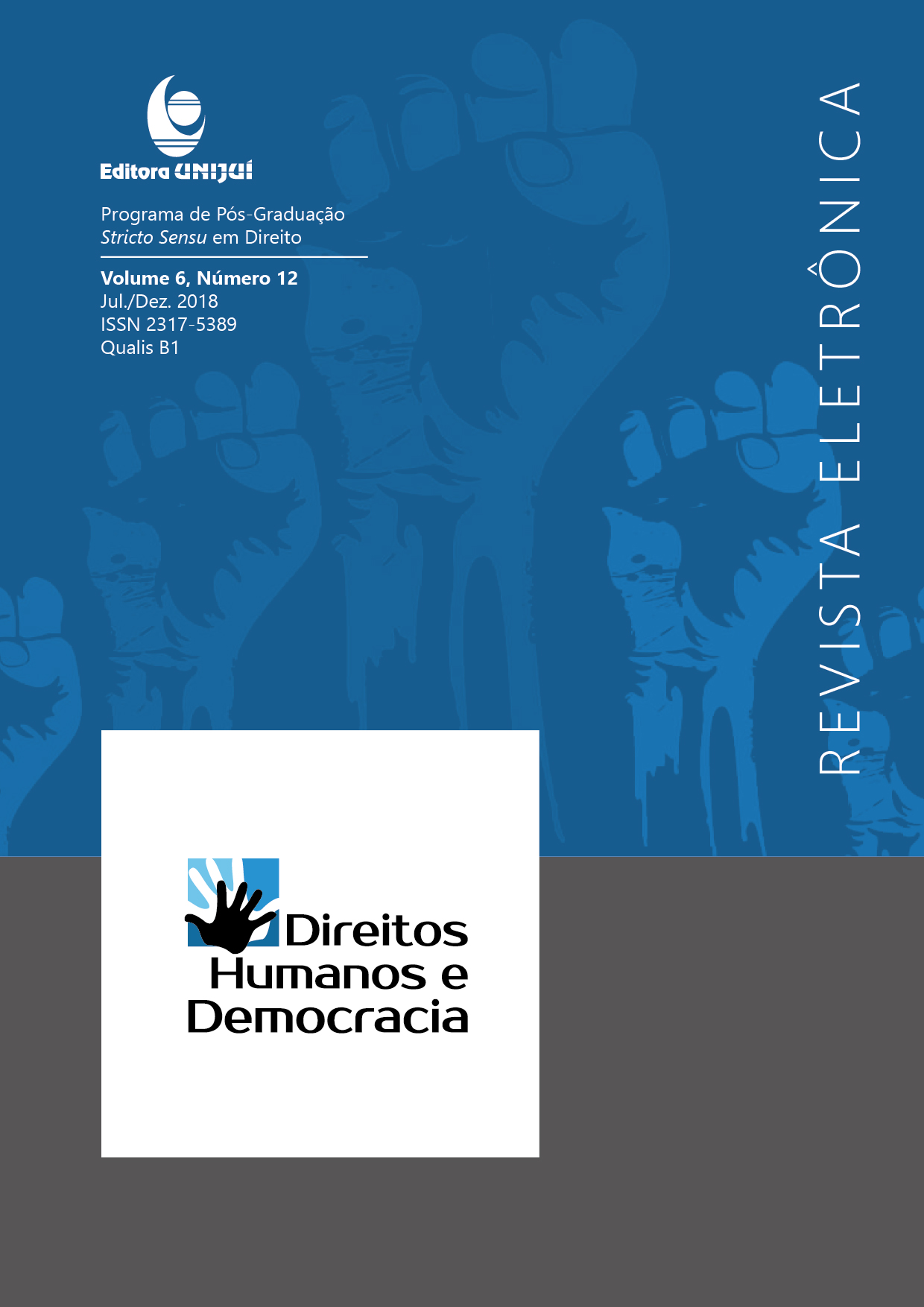AS LIMITAÇÕES DO INSTITUTO DO REFÚGIO NA CONVENÇÃO RELATIVA AO ESTATUTO DOS REFUGIADOS DE 1951 E NO PROTOCOLO DE 1967
DOI:
https://doi.org/10.21527/2317-5389.2018.12.248-263Resumo
A humanidade, de um lado, está marcada por guerras, autoritarismo e exploração. Por outro lado, catástrofes naturais e eventos da natureza desastrosos, muitos deles em consequência da dilapidação do meio ambiente praticada pelos países centrais, que não raras vezes expõem as nações periféricas a estas consequências. As ferramentas de tutela, geralmente, não são implementada na mesma velocidade que delas se precisa. Nesse sentido, e através do método histórico dialético, este trabalho objetiva entender, à luz dos tratados e convenções internacionais, do qual o Brasil é signatário, e dos direitos da personalidade e trabalhistas, de que maneira os haitianos são tutelados em terras brasileiras. Constatou-se que eles são recebidos com visto permanente por razões humanitárias, apesar de solicitarem o refúgio. Isto por conta das limitações conceituais dos dispositivos internacionais e do abandono da lei 9.474/94 neste caso concreto. Identificou-se que ambos os institutos são insuficientes para esta proteção. Foi discutida a recepção constitucional dos Tratados e Convenções Internacionais e a sua vinculatividade. Ademais, nas considerações finais, concluiu-se que ainda experimentamos a negação do outro, isto é, daquele que é diferente. Finalmente, que a superação desta realidade perpassa pelo diálogo, pela política e pela educação.
Downloads
Publicado
Como Citar
Edição
Seção
Licença
Ao publicar na Revista Direitos Humanos e Democracia, os autores concordam com os seguintes termos:
Os trabalhos seguem a licença Creative Commons Atribuição 4.0 Internacional (CC BY 4.0), que permite:
Compartilhar — copiar e redistribuir o material em qualquer meio ou formato;
Adaptar — remixar, transformar e criar a partir do material para qualquer fim, inclusive comercial.
Essas permissões são irrevogáveis, desde que respeitados os seguintes termos:
Atribuição — os autores devem ser devidamente creditados, com link para a licença e indicação de eventuais alterações realizadas.
Sem restrições adicionais — não podem ser aplicadas condições legais ou tecnológicas que restrinjam o uso permitido pela licença.
Avisos:
A licença não se aplica a elementos em domínio público ou cobertos por exceções legais.
A licença não garante todos os direitos necessários para usos específicos (ex.: direitos de imagem, privacidade ou morais).
A revista não se responsabiliza pelas opiniões expressas nos artigos, que são de exclusiva responsabilidade dos autores. O Editor, com o apoio do Comitê Editorial, reserva-se o direito de sugerir ou solicitar modificações quando necessário.
Somente serão aceitos artigos científicos originais, com resultados de pesquisas de interesse que não tenham sido publicados nem submetidos simultaneamente a outro periódico com o mesmo objetivo.
A menção a marcas comerciais ou produtos específicos destina-se apenas à identificação, sem qualquer vínculo promocional por parte dos autores ou da revista.
Contrato de Licença: Os autores mantém os direitos autorais sobre seu artigo, e concedem a Revista Direitos Humanos e Democracia o direito de primeira publicação.













